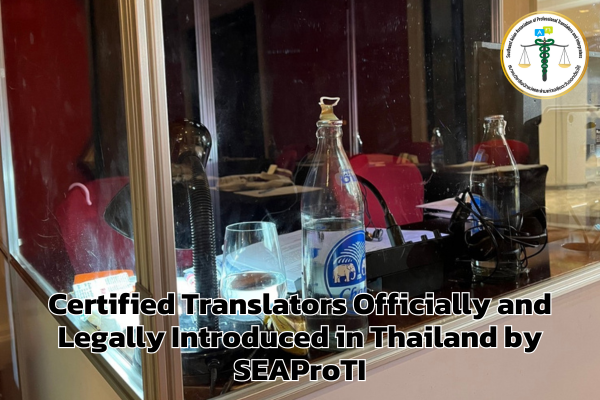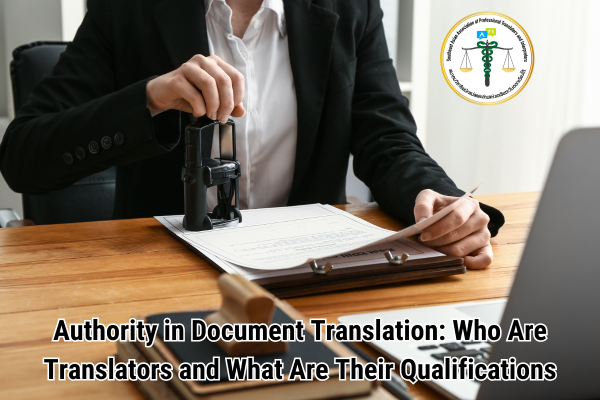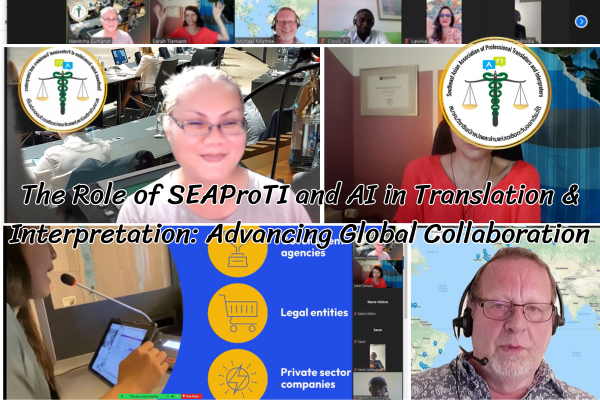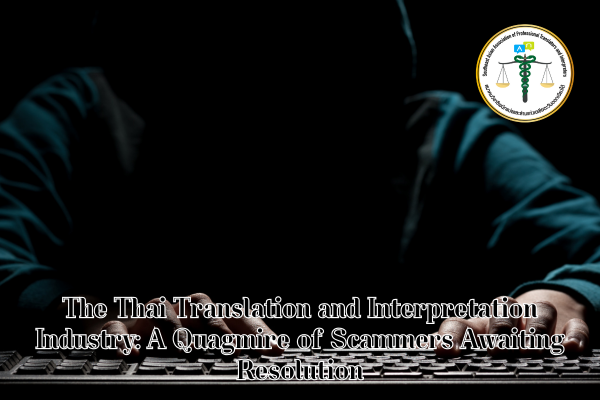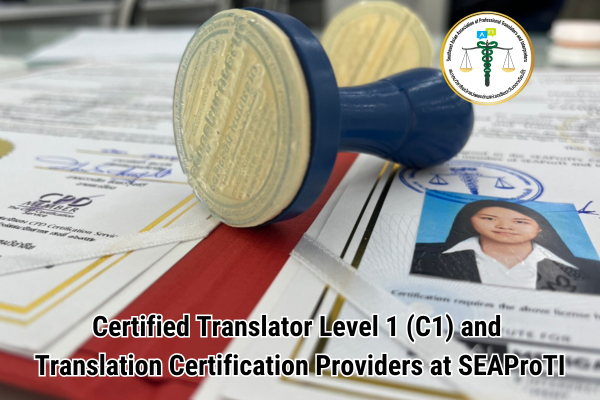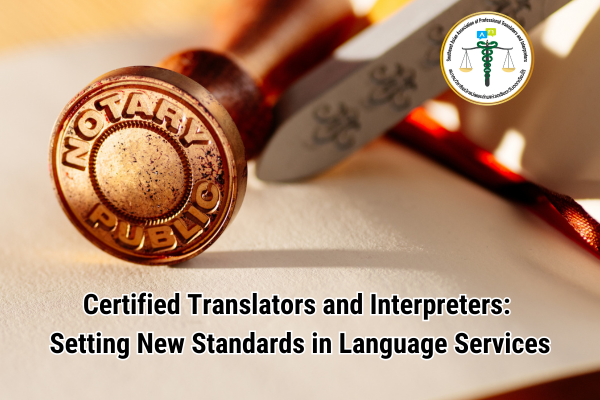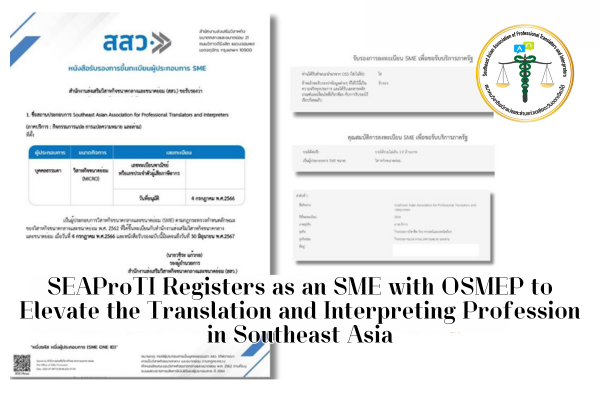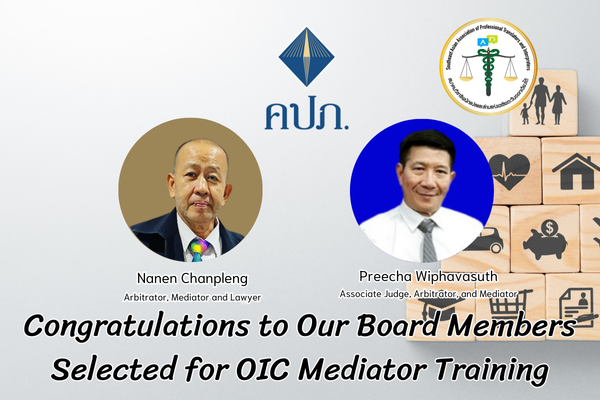Certified Interpreters Officially and Legally Introduced in Thailand by SEAProTI
In a groundbreaking move for the translation and interpreting industry, the Southeast Asian Association of Professional Translators and Interpreters (SEAProTI) has officially introduced certified interpreters in Thailand. This marks a significant step forward in enhancing the credibility, professionalism, and legal recognition of interpreters across various sectors in the country.
The introduction of certified interpreters comes at a time when globalization and cross-border communication are more critical than ever. This initiative not only elevates the standards of interpreting services but also aligns Thailand with international best practices.
The Role of SEAProTI in Professionalizing Interpreting Services
Founded in 2021, SEAProTI has quickly established itself as a leading professional body for translators and interpreters in Southeast Asia. Its mission is to elevate the standards of these professions, offering certification programs, training, and professional development opportunities.
SEAProTI’s certification is recognized by the Royal Thai Government, as the association’s rules and regulations have been published in the Royal Gazette of Thailand. This official endorsement ensures that the certifications offered are both credible and legally binding.
According to SEAProTI’s President, Wanitcha Sumanat, the association aims to create a robust framework for interpreters to operate within, ensuring they adhere to the highest standards of accuracy, confidentiality, and professionalism.
“Certification not only validates an interpreter’s skills but also provides clients with a sense of security and trust,” she explained.
The Importance of Certification in Interpreting
Interpreting is a highly specialized profession that requires more than just fluency in two languages. Certified interpreters must possess advanced skills in areas such as:
- Simultaneous and Consecutive Interpreting: For high-stakes environments like courts, medical settings, and international conferences.
- Cultural Competency: Understanding the nuances of both source and target languages.
- Legal and Ethical Standards: Ensuring confidentiality, impartiality, and accuracy.
In Thailand, the lack of a standardized certification system had previously led to inconsistent quality in interpreting services. Unqualified interpreters could inadvertently cause misunderstandings or legal complications, particularly in sensitive fields like law and medicine.
The introduction of certified interpreters by SEAProTI aims to address these gaps. Certification ensures that interpreters have undergone rigorous training and assessment, providing them with the skills and knowledge necessary to handle complex assignments.
The Certification Process
SEAProTI’s certification program is designed to be comprehensive and rigorous. It includes both written and oral exams, as well as practical assessments that simulate real-world interpreting scenarios.
The process typically involves:
-
Written Exam: This tests an interpreter’s understanding of terminology, ethics, and general interpreting principles.
-
Oral Exam: Candidates demonstrate their interpreting skills in simulated environments, including:
- Dialogue Interpreting: Between two speakers.
- Consecutive Interpreting: For extended speeches or statements.
- Simultaneous Interpreting: For fast-paced, real-time communication.
-
Professional Experience: Candidates are required to submit proof of work experience or undertake a supervised internship.
SEAProTI also emphasizes continuous professional development. Certified interpreters must renew their certification periodically by attending workshops, training sessions, and submitting updated work samples.
Legal Recognition and Practical Implications
One of the most significant achievements of SEAProTI’s certification initiative is its legal recognition. Interpreters who pass SEAProTI’s rigorous certification process are recognized as “Certified Interpreters” under Thai law. This recognition provides them with the authority to work in official capacities, including:
- Court Proceedings: Certified interpreters can now be appointed in legal cases, ensuring that language barriers do not impede justice.
- Medical Settings: Hospitals and clinics can rely on certified interpreters to facilitate accurate communication between healthcare providers and patients.
- Government and Diplomatic Services: Certified interpreters can serve in high-level negotiations and international conferences.
This legal backing also benefits clients. Organizations and individuals can verify an interpreter’s credentials through SEAProTI’s online directory, ensuring they hire qualified professionals.
Benefits for Interpreters and Clients
The introduction of certified interpreters offers numerous benefits for both interpreters and their clients:
- Enhanced Credibility: Certification provides interpreters with a competitive edge, demonstrating their skills and professionalism.
- Higher Earnings: Certified interpreters often command higher fees, as their services are recognized as premium.
- Client Confidence: Clients can trust certified interpreters to deliver accurate and reliable services, especially in critical situations.
- Professional Development: SEAProTI provides ongoing training opportunities, helping interpreters stay updated on industry trends and best practices.
Industry Impact and Future Outlook
The introduction of certified interpreters is expected to have a profound impact on various sectors in Thailand.
In the legal field, certified interpreters will play a crucial role in ensuring fair trials and due process for non-Thai speakers. In the healthcare sector, they will bridge communication gaps, improving patient outcomes and reducing the risk of medical errors.
Moreover, SEAProTI’s certification aligns Thailand with international standards, enhancing its reputation as a hub for professional language services in Southeast Asia. This is particularly important as the country continues to attract foreign investment and international conferences.
Looking ahead, SEAProTI plans to expand its certification programs to include specialized fields such as forensic interpreting and technical interpreting. The association is also working on establishing partnerships with international organizations to promote cross-border recognition of its certifications.
Testimonials from Certified Interpreters
Several interpreters who have recently obtained SEAProTI certification have shared their experiences:
Preecha Watcharanai, a newly certified interpreter, emphasized the importance of the certification in boosting his career:
“SEAProTI’s certification process was challenging but incredibly rewarding. It has opened doors to opportunities I never thought possible.”
Thanyatorn Haruthaithawon, an experienced interpreter, highlighted the impact of legal recognition:
“Being a certified interpreter gives me the confidence to take on high-stakes assignments. Clients trust my credentials, and I feel proud to be part of a recognized profession.”
Conclusion
The official introduction of certified interpreters in Thailand by SEAProTI represents a monumental shift in the language services industry. By establishing a standardized certification system, SEAProTI is setting new benchmarks for quality and professionalism.
This initiative not only benefits interpreters by providing them with a clear career path and professional recognition but also serves clients by ensuring they have access to highly qualified language professionals. As SEAProTI continues to expand its certification programs and international partnerships, the future of interpreting in Thailand looks brighter than ever.
About SEAProTI:
The Southeast Asian Association of Professional Translators and Interpreters (SEAProTI) has officially announced the criteria and qualifications for individuals to register as “Certified Translators,” “Translation Certification Providers,” and “Certified Interpreters” under the association’s regulations. These guidelines are detailed in Sections 9 and 10 of the Royal Thai Government Gazette, issued by the Secretariat of the Cabinet under the Office of the Prime Minister of the Kingdom of Thailand, dated July 25, 2024, Volume 141, Part 66 Ng, Page 100.
To read the full publication, visit: the Royal Thai Government Gazette


